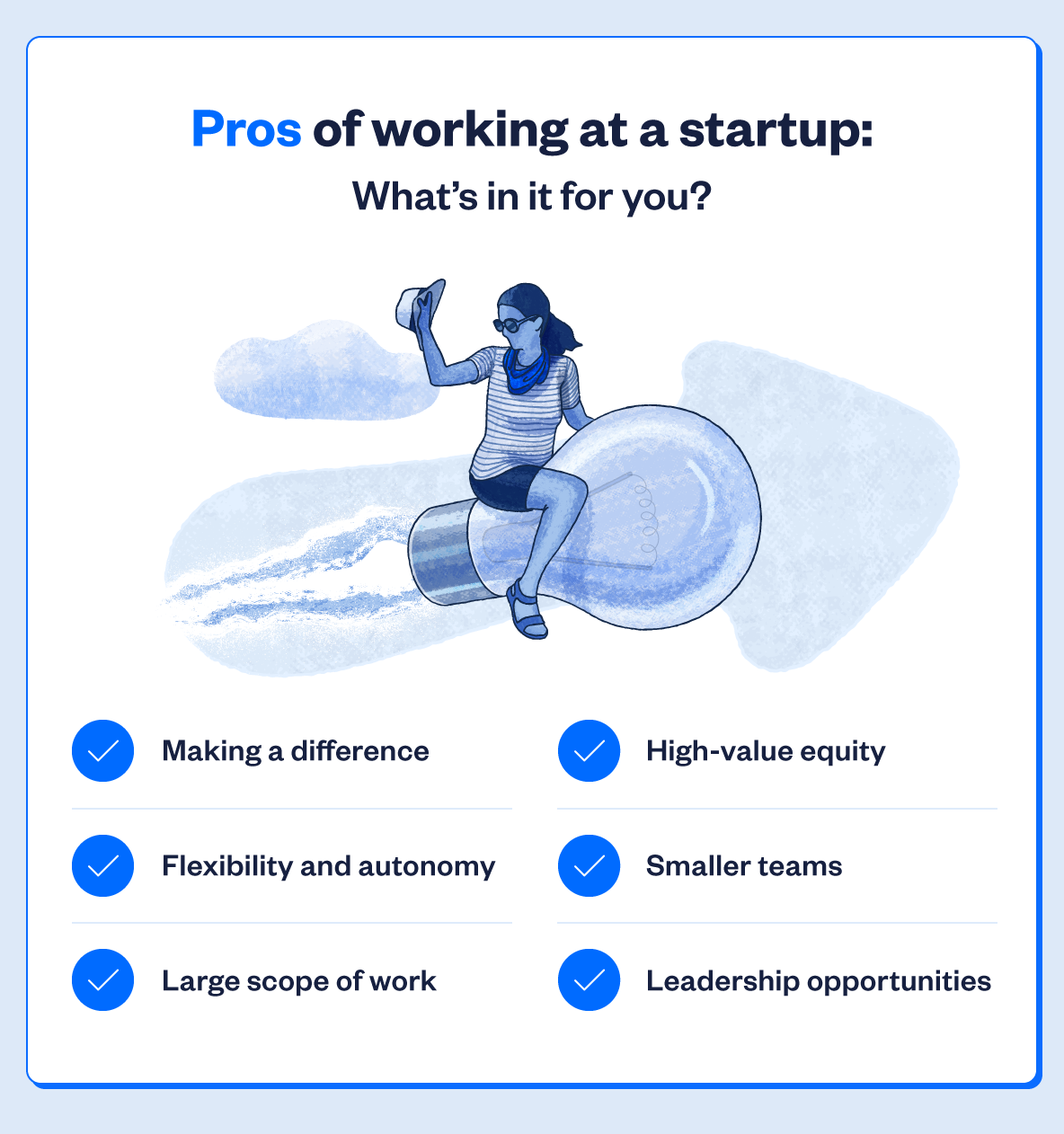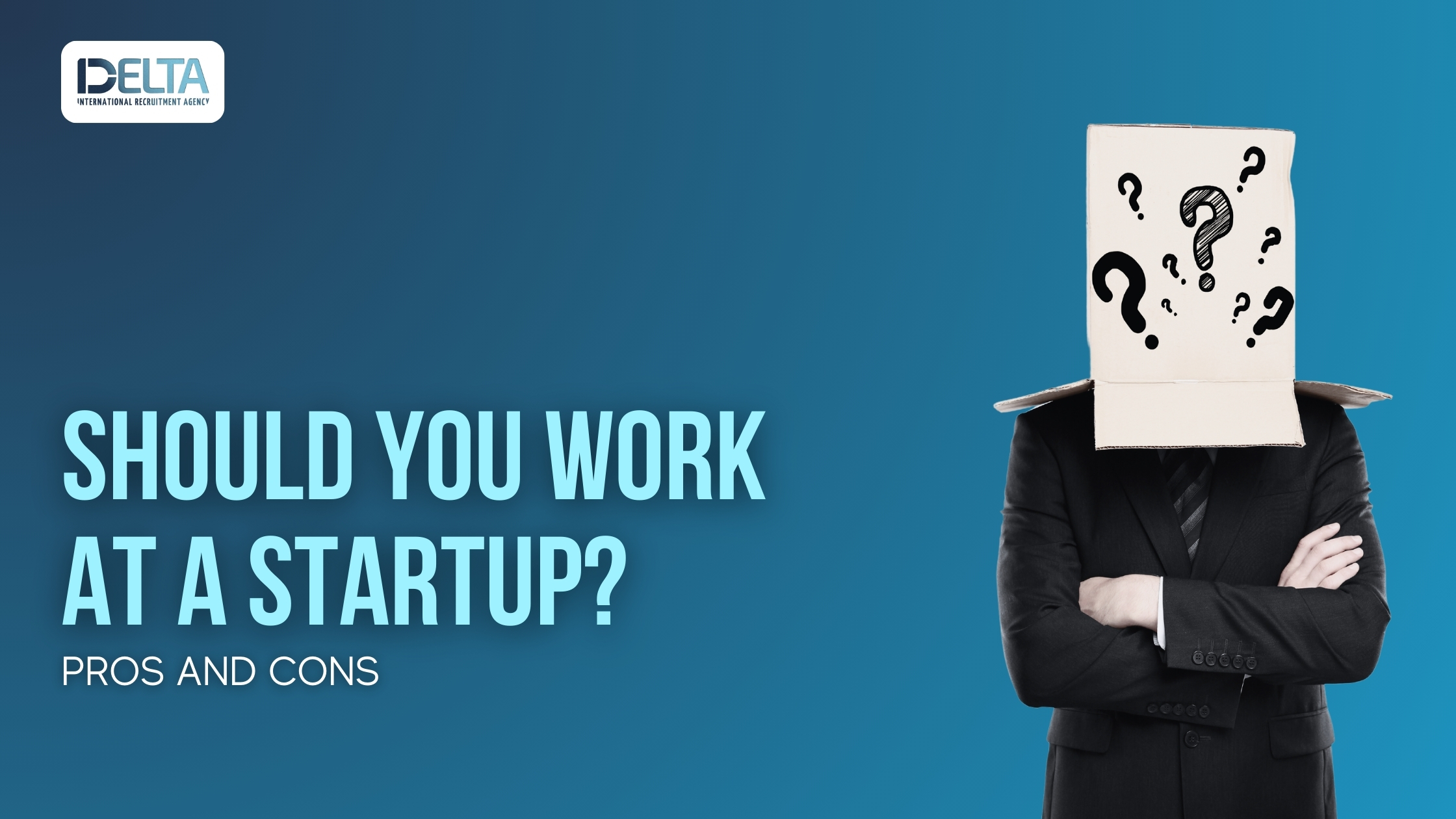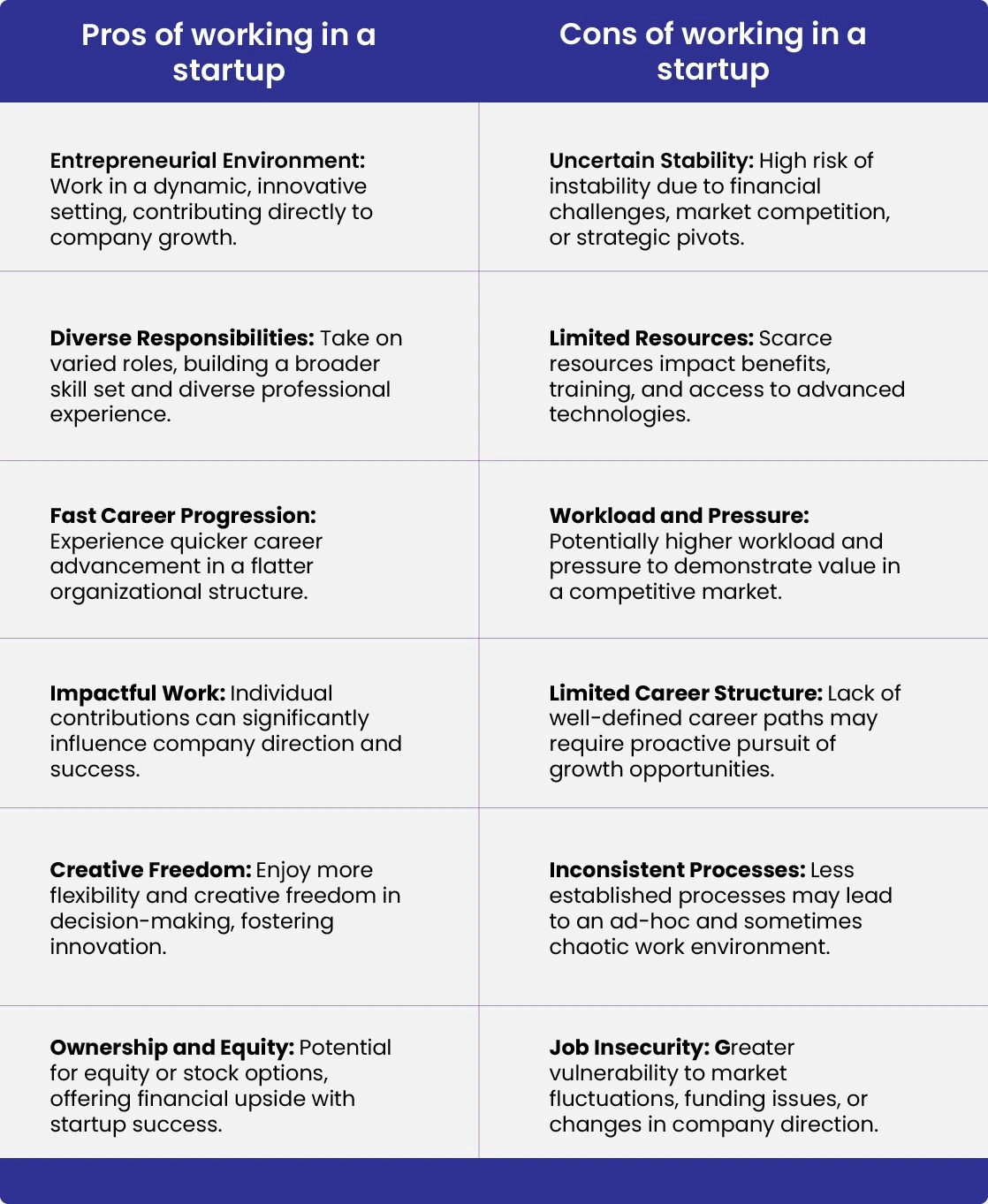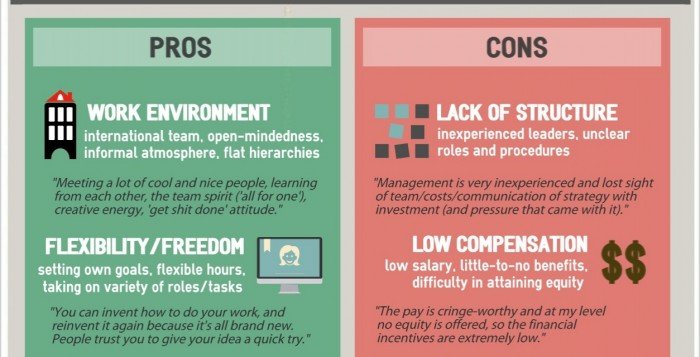Pros And Cons Of Working In A Startup

The allure of a startup is undeniable. Visions of disrupting industries, building something from the ground up, and the promise of rapid growth fuel the dreams of countless professionals. However, beneath the surface of ping pong tables and flexible hours lies a complex reality, a world of intense pressure, financial uncertainty, and potential burnout.
Choosing to work at a startup is a high-stakes gamble. It offers tremendous opportunity for personal and professional growth, but it also demands significant sacrifices. Understanding the potential rewards and inherent risks is crucial for anyone considering taking the plunge. This article delves into the pros and cons of startup life, offering a balanced perspective to help you make an informed decision.
The Alluring Advantages
Rapid Growth and Learning
Startups often provide unparalleled opportunities for rapid learning. Due to smaller teams and less rigid hierarchies, employees are frequently exposed to various aspects of the business. This allows individuals to acquire a diverse skillset and advance their careers more quickly than in established corporations, according to a 2023 survey by LinkedIn.
Exposure to different departments and responsibilities is common. Many employees end up wearing many hats and developing a broader professional skill set as a result.
Impact and Ownership
In a startup, your contributions directly impact the company's trajectory. Unlike being a small cog in a large machine, employees at startups have a tangible influence on the product, the culture, and the overall success of the business. This sense of ownership can be incredibly motivating and rewarding.
Employees may have the chance to contribute to decision-making processes and shape the future of the company. Startup employees have an amazing opportunity to leave their mark.
Innovation and Creativity
Startups are typically driven by innovation and a desire to disrupt the status quo. This fosters a stimulating and creative environment where employees are encouraged to think outside the box and experiment with new ideas. This encourages employees to take risk and challenges convention.
Working alongside passionate and like-minded individuals can be incredibly inspiring and conducive to personal and professional growth. Startups thrive on the idea of creating innovative solutions.
Flexible Work Environment
Many startups offer flexible work arrangements, including remote work options and flexible hours. This can be particularly appealing to individuals seeking a better work-life balance. A study by Forbes found that employees in startups with flexible work options report higher levels of job satisfaction.
Flexibility is not always possible due to the demands of the startup, but it is frequently the trend with most startups.
The Harsh Realities
Financial Instability
One of the biggest risks associated with working at a startup is financial instability. Startups often operate on limited budgets and may not be able to offer the same level of job security or benefits as established companies. Pay cuts and layoffs are not uncommon, particularly during periods of economic downturn.
Compensation packages may include stock options, but their value is contingent on the company's success. Some people may even consider this a gamble.
Long Hours and Burnout
The demands of building a company from scratch often translate into long hours and intense pressure. Burnout is a common problem in the startup world, as employees frequently sacrifice their personal lives to meet demanding deadlines. This can have serious consequences for both physical and mental health.
Startups often operate with limited staff, which means workloads can be significant. Managing work life balance can be difficult.
Lack of Structure and Resources
Startups typically lack the established processes, infrastructure, and resources of larger companies. This can lead to frustration and inefficiency, as employees may have to wear multiple hats and navigate ambiguous roles and responsibilities. Startups can often feel unorganized and chaotic.
Resource and structure limitations are common in this environment. Many potential benefits can be lost because of this limitation.
High Risk of Failure
The vast majority of startups fail. According to data from the Small Business Administration, roughly 20% of new businesses fail during the first two years of being open, 45% during the first five years, and 65% during the first 10 years. This means that employees are taking a significant risk when they join a startup, as their jobs may be short-lived.
Startup employees are not protected from this harsh reality. Employees should be aware of the potential risk they are taking when they join a startup.
Making the Right Choice
Deciding whether or not to work at a startup is a personal decision that depends on your individual priorities, risk tolerance, and career goals. Carefully weigh the potential rewards against the inherent risks before making a commitment. Research the company, its leadership team, and its funding status. Talk to current and former employees to get a realistic perspective on the company culture and the challenges of working there.
Ask tough questions during the interview process about the company's financials, its growth strategy, and its plans for addressing potential challenges. Most importantly, be honest with yourself about whether you are willing to make the sacrifices necessary to thrive in a startup environment.
Looking Ahead
The startup landscape is constantly evolving. While the challenges remain significant, there are signs that some startups are prioritizing employee well-being and creating more sustainable work environments. As the competition for talent intensifies, startups are increasingly recognizing the need to offer competitive compensation packages, comprehensive benefits, and opportunities for professional development.
Ultimately, the future of startup work will depend on the willingness of founders and leaders to prioritize both growth and employee satisfaction. A sustainable startup ecosystem requires a balance between innovation and well-being.


















